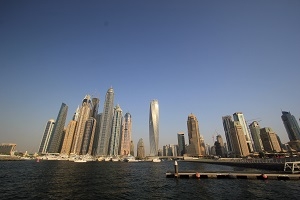Mohammad Skaiky, analyst covering the Middle East and North Africa region (MENA) at Glass Lewis, shares his thoughts on the development of corporate governance standards in the region following two recent regional conferences focused on this topic.
Developing countries have, for a long while, struggled to attract steady foreign investment due to lack of regulation and underdeveloped financial markets. While some countries are firmly committed to achieving a best market practice for all aspects of their financial institutions and markets, others still lack the will to build a solid base or to follow up on the application of their existing systems.
 Recently however, some countries in the MENA region have managed to surprise the world with innovative regulations and frequent updates to keep up with the worlds’ leading markets. Take Oman for an example, which is the region’s first country to introduce an advanced corporate governance code. The country’s prior corporate governance code was revised in 2016 and updated to include an extremely interesting law, obliging companies to carry out an annual board evaluation and appoint an independent third party elected by shareholders to supervise that evaluation. Other countries in the region, despite being major players with huge economies, opted to be passive in terms of regulations and/or application of the laws and rules.
Recently however, some countries in the MENA region have managed to surprise the world with innovative regulations and frequent updates to keep up with the worlds’ leading markets. Take Oman for an example, which is the region’s first country to introduce an advanced corporate governance code. The country’s prior corporate governance code was revised in 2016 and updated to include an extremely interesting law, obliging companies to carry out an annual board evaluation and appoint an independent third party elected by shareholders to supervise that evaluation. Other countries in the region, despite being major players with huge economies, opted to be passive in terms of regulations and/or application of the laws and rules.
One key takeaway from the Arab Federation of Exchanges Annual Conference, held in Beirut on April 26, was that, above all other factors, developed regulations and updated laws can truly lead to growth in the number of listed companies. The region’s financial markets are now witnessing substantial growth at an overall rate of 5%–though somewhat skewed with 40% growth in Dubai–with a potential to see higher numbers in the coming years. In addition, speakers agreed that listing requirements, which vary widely across the region, can be one of the main reasons for discrepancies in growth rates.
Another factor is that the economies of the MENA region vary widely; they include the world’s wealthiest oil countries with low populations and other poor countries with massive populations, in addition to countries with either wars or instability, thus taking them out of the equation. These disparities, along with the geographic scope of the region, which stretches from the western coast of Africa to the edges of India, mean that MENA cannot always be treated as a whole or generalized.
At this point, it seems that listed companies have a major role to play in opening up local markets to the rest of world and polishing their image as attractive investment hubs. At the Hawkamah Annual Conference, held in Dubai in May, Mr. Ashraf Al-Sharkawy, the Egyptian Minister of Public Sector Affairs, emphasized the importance of listed companies abiding by laws and codes to allow for further developments and updates. He also added that, whilst efforts are put in place to see better application, we can see advanced development to the corporate governance codes including more requirements for capital management, and board requirements such as committees and members’ tenure limit.
Investors should be on the lookout for companies in the region that strive to distinguish themselves by responding to the needs of foreign investors. More broadly, expect to see additional countries tightening listing standards while opening their markets to the world.
